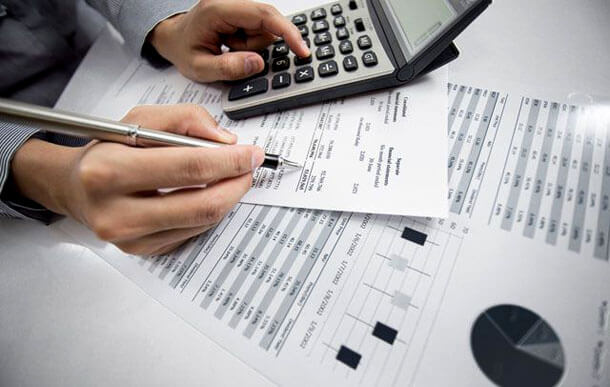A Tax You Can’t Hide From - The Value Added Tax

The Value Added Tax (VAT) is present in every deal, it is adding its percentage to every transaction, reminding us that taxes are a part of our life. Even if you try to hide from it, VAT will still find you. It is much easier to try to make friends with it in order to live peacefully altogether.
VAT is one of the main sources of state budget revenue in many countries, including Ukraine. According to the World Trade Organization, VAT is applied in more than 160 countries, with rates ranging from 5% to 27%. In Ukraine, VAT was introduced in 1992, and it is undergoing frequent changes due to economic conditions, political decisions, and especially now during martial law. There are also a number of VAT exemptions that cover categories like provision of medical supplies and agricultural products. It should be noted that it’s impossible to opt out of these tax benefits since it is directly stated in the law (subparagraph 30.4 of the Tax Code of Ukraine) and is aimed to support specific sectors of the economy and to reduce the tax load.
New forms of tax invoices and adjustment calculations
The past two months have not passed without changes either. On October 1, 2024, new forms of tax invoices (TI) and adjustment calculations (AC) came into effect, approved by Order No. 400 of the Ministry of Finance dated August 9, 2024. The updated forms include new details, such as contract information and customs declarations for exports, as well as indicators for agricultural products. More detailed information can be found on the website of the State Tax Service.
In addition, the rules for monitoring risky transactions that affect the blocking of tax invoice registrations have been changed. Changes were also made to the Procedure for Suspending the Registration of Tax Invoices (Cabinet of Ministers Resolution No. 1165, dated December 11, 2019). These changes relate to the automated monitoring of risky TI/AC which reflect export transactions subjected to export support regime.
Although the rules are constantly changing, VAT administration remains a complex process. The main goal of VAT administration, like with any other tax, is to ensure timely accrual and payment of tax to the budget. This process includes: registration of VAT payers, accounting and reporting, automated monitoring and blocking/unblocking of invoices.
Blocking of tax invoices
In recent years, the most discussed issue of VAT administration has been the blocking of tax invoices. The blocking of tax invoices is a mechanism that allows tax authorities to temporarily suspend invoice registration if potential risks of tax evasion are detected. The purpose of this mechanism is to combat fictitious transactions and "rolling" schemes (illegal VAT refund).
In practice, this tool is often used unreasonably or mistakenly. Blocking affects all taxpayers, sometimes causing serious difficulties, both financial and administrative, because the unblocking process is long and requires collecting a significant number of documents.
Member of the Committee of the Verkhovna Rada of Ukraine on Finance, Tax and Customs Policy Nina Yuzhanina regularly publishes information regarding the blocking of TI/AC. The latest data, as of August 2024, states:
“On average, each month throughout 2024, the tax authorities blocked TI/AC of 23.5 thousand taxpayers (15% of those who registered TI/AC). In total, in 8 months of 2024 1.6 million TI/AC were blocked, of which 1.2 million (72%) were later unblocked by tax authorities, meaning that on average 17 thousand VAT payers per month were able to prove to tax officials their right to register TI/AC. 5 thousand taxpayers defended their right to register TI/AC in court for for the VAT amount of almost UAH 2 billion. As of September 1, 2024, the number of risky taxpayers stands at more than 32 thousand (21% of all payers who registered TI/AC). The list of risky taxpayers increased in August, and the upward trend in the number of risky taxpayers has continued since September 2023. In August, 44 taxpayers were excluded from the risky list by court decisions, and 20 taxpayers were excluded by the results of administrative appeals".
Unblocking process
To briefly outline the unblocking process: tax documents are automatically blocked when certain risks are detected, which are defined by Cabinet of Ministers Resolution No. 1165 of December 11, 2019. After a tax invoice fails automated monitoring, the taxpayer receives a notice with information on the reasons for blocking. Based on this, further action is taken: either we submit a package of documents with explanations or we remove the company from the “risky” status first. In written explanations we clearly describe the business transaction and confirm it with a package of documents (clause 5 of the Order of the Ministry of Finance of Ukraine No. 520 of December 12, 2019).
After this stage the commission must make a decision within 5 working days (unless a Notification for additional explanations is issued) regarding the unblocking or refusal to register tax documents. If all documents meet the requirements, a positive decision will be made. In case of refusal you can file a complaint or go to court. However, compliance with legal requirements and prompt submission of necessary documents helps to minimize the negative consequences of blocking and to unblock tax documents at the stage of submitting an explanation.
If you need assistance with unblocking tax invoices or adjustment calculations, feel free to contact us, and our specialists will be happy to help.